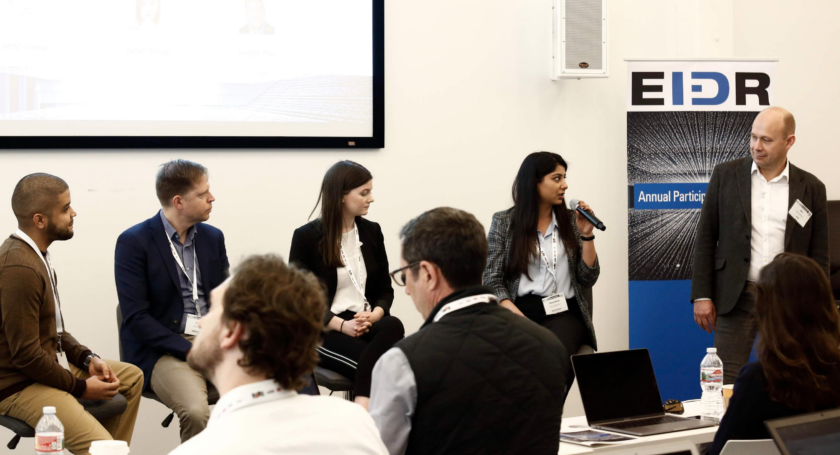Exclusives

Making the Business Case for EIDR is Important to Drive Increased Adoption
Story Highlights
Adoption of the Entertainment Identifier Registry (EIDR) global unique identifier system continues to grow, but it remains important to continue making the business case for more organizations to adopt it globally, according to EIDR and companies supporting it.
“There’s still a lot of work to do in informing even existing members” of EIDR, Francois Modarresse, business development consultant for EIDR, said Jan. 30 while moderating a panel presentation called “Making the Business Case for EIDR” at EIDR’s annual Participant Meeting in Playa Vista, Calif.
“There are a lot of people that need to be informed” still, despite the aggressive efforts by EIDR to raise awareness of its ID system, he said.
“We probably spend 60-plus percent of our time” with outreach efforts to make companies aware of EIDR through conferences and other events, he said. This year, EIDR is also organizing tracks at international conferences, he noted, saying announcements on that will come later this quarter.
What he continues to hear over and over is that people will use EIDR if suppliers/customers/distributors use it, so “it’s very important to show to our respective partners that we are all in it and we want to work together,” he said.
A few people working directly on the front lines of implementing EIDR in their workflows and title management systems also spoke during the panel discussion, providing details of their implementation experiences. They also suggested ways to boost EIDR adoption in member organizations and across the wider ecosystem.
At the Nordic Entertainment (NENT) Group, for example, implementing EIDR was “a learning curve process,” according to Urban Löfbom, NENT Group senior project manager. The fact that NENT Group had a CTO who understood the value of doing it helped, he said, adding that his company was now “seeing some real sort of commercial benefits internally” from EIDR implementation.
But NENT Group would like to get help from the industry and EIDR board members to get EIDR IDs while acquiring content, he said. Metadata is part of the deals that NENT Group makes, but it still must manage that info manually now, which he called “a pain.”
NENT Group has been asking distributors of content it does business with to send EIDR IDs to it directly, but many of them don’t have them or don’t use the IDs in the same way that NENT Group does now, according to Frida Meurling, EIDR lead operator at NENT Group.
“We are integrating EIDR heavily into our workflows,” she said. But “round-trip reporting from the retailer side” is “something that we would like to look into” as well, she said, referring to the process under which an EIDR ID is used in the initial publishing of an avail for a piece of film or TV content and is then used all the way through financial reporting about the performance of that content.
Holding events like this one, where companies share their use cases, strengths and weaknesses across the industry, was helpful, she said.
NENT Group has automated the matching of movies now, she went on to say, recalling: “In the beginning, we had over 1,500 a week” that needed to be matched. But “now we have maybe two movies a week due to EIDR and automation,” she said.
TV series matching, however, is “a lot harder because the running order differs a lot and there might be slight changes” in each episode, she said.
During an earlier presentation at the event, participating companies identified the common themes of what it looked like and what it took to actually get onboard with EIDR, Jason Peña, program manager for Google Play, pointed out.
“There really is no magic bullet — no silver bullet as far as reconciling your catalogs to get up to speed,” he said. But once an organization overcomes that hurdle, with the efficiencies provided by an application program interface (API), it can keep pace with the always-changing catalogs of content a business has and is able to get into a better position to reconcile those titles with EIDR as they move forward, he said.









